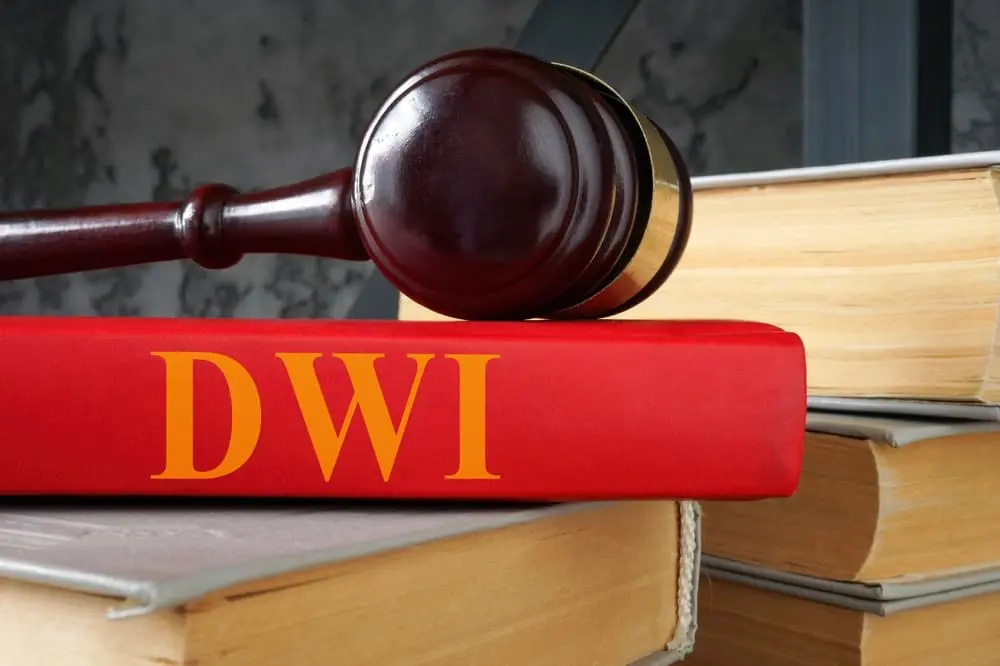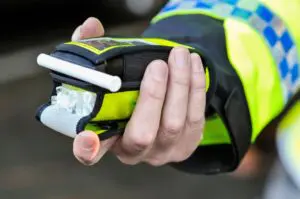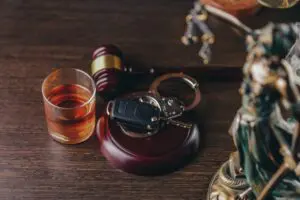What Can a DWI Lawyer Do for You?

An experienced DWI lawyer safeguards your future when an arrest threatens your license, freedom, and career. A charge of Driving While Intoxicated (DWI) places you under immediate legal pressure, even before your first court appearance.
DWI cases involve two separate battles: criminal charges in court and a license suspension process through the Texas Department of Public Safety. Each follows its own timeline and consequences. Prosecutors devote extensive resources to convictions, and both proceedings require technical defenses that are difficult to handle alone.
If you are facing DWI charges anywhere in North Texas, contact Whalen Law Office today at (214) 368-2560 to protect your driving privileges and defend your freedom.
Key Takeaways About What a DWI Lawyer Can Do for You
- A DWI lawyer handles both criminal court proceedings and administrative license suspension hearings, which have different rules and deadlines.
- Technical defenses involving breath-test device calibration, field sobriety test administration, and traffic stop legality often lead to dismissed or reduced charges.
- Early intervention by an attorney preserves evidence, protects your license, and prevents costly mistakes during the investigation phase.
- Experienced DWI attorneys negotiate alternative sentencing options that minimize impact on your career and driving privileges.
- The total cost of a DWI conviction extends far beyond fines, including higher insurance, license fees, and potential job loss.
How a Texas DWI Lawyer Challenges DWI Traffic Stops and Police Investigations
Every DWI case begins with police contact, whether through a traffic stop, accident investigation, or checkpoint encounter. Your DWI lawyer scrutinizes every aspect of this initial interaction for constitutional violations that could invalidate the case. Police must have reasonable suspicion for traffic stops or follow specific procedures at sobriety checkpoints.
Officers often claim they saw weaving within a lane or other minor traffic issues to justify stops. However, dashcam video frequently contradicts these claims, showing driving behavior that does not meet the legal standard for reasonable suspicion.
When police lack a valid reason for the initial stop, your lawyer can file a motion to suppress all evidence obtained from that stop, arguing it is inadmissible under the exclusionary rule.
Field Sobriety Test Administration and Reliability
Field sobriety tests play a major role in DWI investigations, but their reliability depends heavily on how they are administered and interpreted. A closer look reveals that these tests are far from foolproof:
- The National Highway Traffic Safety Administration (NHTSA) requires officers to follow strict protocols for field sobriety tests, and any deviation reduces the reliability of the results as evidence.
- Performance on field sobriety tests can be affected by medical conditions, injuries, age, weight, or footwear rather than alcohol or drug impairment.
- A DWI lawyer reviews whether the officer considered these factors or wrongly assumed that every misstep was evidence of intoxication.
- Video recordings often show defendants performing better than reported, raising doubts about the accuracy and fairness of the officer’s conclusions.
Because of these issues, field sobriety tests are not always reliable indicators of impairment. A strong defense often involves challenging how these tests were administered and how the results were portrayed in court.
How a Texas DWI Lawyer Challenges Breath Test and Blood Test Evidence
 Breath test and blood test results are often presented as the strongest evidence in a DWI case, but these tests are not foolproof. A careful review by an experienced DWI lawyer can uncover errors and inconsistencies that weaken the prosecution’s case.
Breath test and blood test results are often presented as the strongest evidence in a DWI case, but these tests are not foolproof. A careful review by an experienced DWI lawyer can uncover errors and inconsistencies that weaken the prosecution’s case.
- A DWI lawyer examines the entire testing process, including equipment maintenance and the qualifications of testing personnel. Even small mistakes can undermine reliability.
- Breath testing devices must be regularly calibrated and checked against known alcohol concentrations as required under 37 Tex. Admin. Code §§19.2–19.5.
- Medical conditions, prescription medications, and even certain foods can affect breath test readings without indicating actual impairment.
- Blood testing requires an unbroken chain of custody. Any gap increases the risk of contamination, tampering, or inaccurate results.
- Laboratory procedures, analyst training, and storage conditions all influence blood alcohol measurements and may create doubt.
By highlighting these problems, a DWI lawyer can show that chemical test evidence may be less reliable than prosecutors claim. Challenging these results is often a key strategy in DWI defense.
Administrative License Hearings and Driving Privileges
After a DWI arrest in Texas, protecting your driver’s license becomes just as important as defending against criminal charges. The Administrative License Revocation (ALR) process determines whether you can continue driving while your case moves forward.
The 15-Day Deadline to Request a Hearing
In Texas, a DWI arrest triggers an automatic license suspension through the ALR process. You have only fifteen days from the date of arrest to request a hearing. If you miss this deadline, your license is suspended automatically, regardless of what happens in your criminal case.
How ALR Hearings Differ from Criminal Cases
The ALR hearing is a separate legal process with different rules, burdens of proof, and types of admissible evidence. A DWI lawyer uses this opportunity to preview the state’s case and question the arresting officer under oath. The testimony and documents revealed during these hearings often become valuable tools for building a stronger defense in the criminal proceeding.
How a Texas DWI Lawyer Helps Preserve or Restore Your Driving Privileges
Winning the ALR hearing allows you to keep your license while the criminal case moves forward, which helps you continue working and meeting family obligations. Even if suspension is unavoidable, your attorney can seek an occupational license under Tex. Transp. Code §521.242, which allows restricted driving for essential purposes.
Negotiating Alternative Resolutions and Reduced Charges
Not every DWI case goes to trial, and skilled negotiation often leads to better outcomes than risking a jury verdict. Your DWI lawyer evaluates evidence strengths and weaknesses to identify opportunities for favorable plea arrangements.
Prosecutors may agree to reduce charges when confronted with evidentiary problems or resource constraints. Several alternatives to standard DWI conviction exist in appropriate circumstances:
- Deferred adjudication keeping convictions off your record upon successful completion.
- Pretrial diversion programs emphasizing treatment over punishment.
- Reduced charges to reckless driving or obstruction of highway.
- Time-served agreements minimizing jail exposure.
- Alternative sentencing involving community service or treatment programs.
These resolutions require careful negotiation and thorough understanding of local prosecutors’ policies and judges’ preferences. Your attorney’s reputation and relationships within the legal community significantly impact available options.
Long-Term Consequences Your DWI Lawyer Helps Minimize
A DWI conviction can create lasting challenges that extend far beyond fines or short-term penalties. These consequences impact nearly every area of life and make it important to consider the long view when building a defense.
- Insurance premiums often triple or quadruple for several years following a DWI conviction, adding a heavy financial burden.
- Professional licenses can be suspended or revoked, particularly for healthcare providers, commercial drivers, and educators whose careers depend on state licensing boards.
- Non-citizens face risks to their immigration status, and a conviction can even trigger deportation proceedings.
- Employment opportunities shrink when background checks reveal a DWI. Jobs involving driving, security clearances, or licensing are especially difficult to obtain or keep, and many employers have zero-tolerance policies for criminal convictions.
- Educational opportunities may suffer, since some colleges and financial aid programs deny admission or funding to applicants with DWI convictions.
A skilled DWI lawyer works to minimize these collateral consequences by negotiating favorable plea terms, pursuing record-clearing options when available, or structuring outcomes to protect licenses and employment. Addressing long-term risks from the beginning is an important part of a strong defense strategy.
Trial Preparation and Courtroom Defense Strategies
 When plea negotiations fail to produce acceptable outcomes, your DWI lawyer prepares for trial with the same intensity brought to any serious criminal matter. This preparation involves identifying and preparing witnesses, securing expert testimony, and developing themes that resonate with juries. DWI trials present unique challenges requiring specialized knowledge and experience.
When plea negotiations fail to produce acceptable outcomes, your DWI lawyer prepares for trial with the same intensity brought to any serious criminal matter. This preparation involves identifying and preparing witnesses, securing expert testimony, and developing themes that resonate with juries. DWI trials present unique challenges requiring specialized knowledge and experience.
Jury selection in DWI cases requires careful attention to potential biases about drinking and driving. Your attorney identifies jurors whose experiences or beliefs may prevent fair consideration of evidence. This includes those personally affected by drunk driving and those with strong prohibitionist views incompatible with presumption of innocence.
Presenting technical defenses to juries demands the ability to explain complex scientific concepts in understandable terms. Your lawyer must help jurors understand why breath test results might be wrong without losing them in technical details.
Effective cross-examination of police officers requires exposing investigative shortcuts without appearing to attack law enforcement generally.
Whalen Law Office Protecting DWI Defendants Throughout Texas
Note: While Whalen Law Office primarily focuses on high-end federal criminal defense and serious felony matters, they handle felony DWI cases that meet their practice standards.
For felony DWI charges involving serious injury, death, or multiple prior convictions, Whalen Law Office brings nearly four decades of criminal defense experience to protect clients facing these enhanced charges throughout Texas.
James P. Whalen and Ryne T. Sandel understand that felony DWI cases demand the same meticulous attention and aggressive defense as other serious criminal matters. When DWI charges escalate to felony level due to intoxication assault, intoxication manslaughter, or repeat offenses, the stakes match those of any major felony prosecution.
Their comprehensive approach examines every aspect of the state’s case, from the initial traffic stop through chemical testing procedures.
Defending Serious DWI Cases with Strategic Legal Representation
The firm’s flat-fee structure proves particularly valuable in complex felony DWI cases requiring extensive investigation and expert testimony. These cases often involve accident reconstruction, toxicology experts, and challenges to scientific evidence that demand significant time and resources.
Our fee structure provides you with financial certainty, allowing our legal team to dedicate all necessary resources to investigating your case and building a strong defense.
Our attorneys recognize that felony DWI charges threaten not just driving privileges but entire careers and freedom. Professional licenses, security clearances, and immigration status all face jeopardy when DWI charges reach felony level. This understanding drives our aggressive representation from initial appearance through trial or negotiated resolution.
FAQs for DWI Lawyers
What happens if I refuse the breath test?
Refusing a breath test results in a longer administrative license suspension. While it denies prosecutors key chemical evidence, they will use your refusal against you in court, arguing that it shows you knew you were intoxicated.
Your attorney can challenge this argument, but you should understand that the refusal itself becomes evidence in the state’s case.
Can I get a DWI on prescription medication?
Texas law prohibits driving while intoxicated by any substance, including legally prescribed medications. Prosecutors must prove the medication caused impairment at the time of driving. Your DWI lawyer challenges whether therapeutic doses of properly prescribed medications constitute intoxication.
How much does DWI conviction really cost?
Total costs often exceed $15,000, including fines, fees, higher insurance, license reinstatement, ignition interlock devices, and lost wages. This doesn’t include potential job loss or professional license impacts. Legal representation costs far less than conviction consequences.
Will I definitely lose my license after a DWI arrest?
Not necessarily. Winning the ALR hearing preserves driving privileges, and various programs allow restricted driving even after suspension. Your attorney explores all options for maintaining driving ability throughout your case.
Can DWI charges be completely dismissed?
Yes, when police violated procedures, evidence was improperly collected, or reasonable doubt exists about impairment. Dismissals become more likely when experienced attorneys identify and exploit weaknesses early in the process.
How long does a DWI stay on my record in Texas?
In Texas, a DWI conviction stays on your record permanently. Expunction is only available if the court dismissed your case, acquitted you, or overturned your conviction on appeal.
For certain first-time DWIs, limited record sealing through an order of nondisclosure may be possible under Tex. Gov’t Code §§411.0731–411.0736, but eligibility depends on factors such as your blood alcohol concentration, whether an accident occurred, and completion of required waiting periods. Even with nondisclosure, law enforcement, prosecutors, and licensing boards can still access the record.
What is the difference between a felony DWI and a misdemeanor DWI in Texas?
In Texas, a first or second DWI offense is typically a misdemeanor.
A DWI becomes a felony under specific circumstances, including a third or subsequent offense, a DWI with a child passenger under 15, intoxication assault (causing serious bodily injury), or intoxication manslaughter (causing a death).
Felony convictions carry much more severe penalties, including significant prison time and the loss of civil rights.
What is an ignition interlock device?
An ignition interlock device (IID) is a car Breathalyzer that prevents a vehicle from starting if it detects alcohol on the driver’s breath.
A judge may order an IID as a condition of bond or as part of a sentence for a DWI conviction. Under Texas law, even some first-time offenders may be required to install an IID to retain their driving privileges.
Can I get a DWI if I was in a parked car?
Yes. Texas law prohibits “operating” a motor vehicle while intoxicated. The definition of operating is broad and does not strictly require the vehicle to be in motion.
If the facts suggest you had control of the vehicle and could put it in motion (e.g., you were in the driver’s seat with the keys in the ignition), you can face a DWI charge even if you parked the car.
What is intoxication assault?
Intoxication assault is a third-degree felony in Texas. A person commits this offense if they cause serious bodily injury to another person by accident or mistake while operating a motor vehicle in a public place while intoxicated.
A conviction carries a penalty of two to ten years in prison and a fine of up to $10,000.
Contact Whalen Law Office Today to Protect Your Future After a DWI
A DWI arrest can have far-reaching consequences, and the steps you take in the days that follow are critical. Without timely legal guidance, important evidence may be lost, deadlines may pass unnoticed, and the prosecution will continue to prepare its case. The decisions you make about legal representation will influence whether this matter becomes a temporary setback or results in a conviction with lasting impact.
Your career, personal freedom, and driving privileges may all be affected, but with experienced counsel, you do not have to navigate the process alone. Our attorneys understand how these cases are prosecuted and bring the knowledge and advocacy needed to ensure your rights are fully protected.
Contact Whalen Law Office at (214) 368-2560 immediately if you’re facing felony DWI charges in North Texas, and let our attorneys protect your future from these serious allegations.